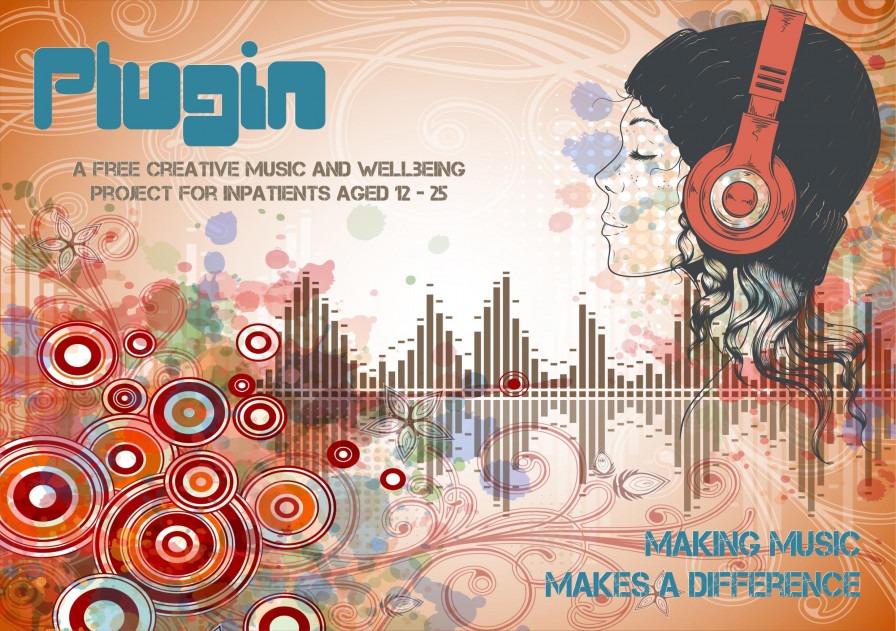Mentoring a young music leader – the responsibilities and the joys of seeing someone develop by Meldra Guza (Music Leader on Quench Arts’ Plugin project)

The role of a mentor - a great opportunity to reflect on our own practices!
In life, at certain times, we might end up in the role of being someone’s mentor. It might be linked to our education, experience, initiative and so on. However, in my experience I have found that being a mentor is just as much about looking within and reflecting as it is about sharing and encouraging someone to take informed steps to become better at what they do.
Leading a community music based workshop requires us to have a multitude of musical skills as well as strong leadership skills, specifically focusing on transformational leadership style with an accent on positive feedback that encourages and enables a sustainable further development. We do not want to make people dependent on our praise, instead give them tools to reflect and create their methods for great practice in an ongoing career pathway setting.
So much about mentoring is leading by example- careful listening, giving the space to trial ideas and offering a safe moment for critical analysis and reflection of the success as well as lessons learnt during the processes of workshop leadership opportunities.
Leading by example
Often it might be misunderstood that leading by example might be the sole truth, the only way of being, which of course is not the case as, in a creative field, we all have our own magic manner to deliver and showcase good practice, some might be more enthusiastic, some might be more reflective in their approach and so on. Either way, leading by example, to me, means showcasing values of professionalism, caring for what we do and creating meaningful engagement with the project participants. On the other hand, it is linked to the project and its team relationships, how we approach open communication, feedback, reporting etc.
Careful listening and space to trial ideas
Truly hearing out our mentees is a key responsibility. Through careful listening we can identify any areas of concern, opportunities to further fine-tune and develop one’s approach to leading a creative workshop, maybe even signpost to further training opportunities. Careful listening can also appear in the form of allowing the mentee the freedom to try their approach, support the facilitation and then offer them space for reflective feedback.
Actively doing and delivering music workshops enables for all of the unknown elements to present themselves (character of the young person, specifics of the setting, preference for musical genre and engagement style etc.); to some extent, being thrown directly in the environment where one needs to lead the workshop and create value for the participant is one of the best ways to utilise experiential learning, allowing the mentee to crystalize their ideals of leadership and create their own approach to support musically the project participants. There is, however, a clear line between empowering someone to fly and setting them up to fail.
The extent of the freedom on delivery of course depends on the prior level of knowledge, skills and preparation that has been put in place with each individual mentee. In my experience with my young music leader over the past year, a very strong musician, very personable and kind young person, it was a delight to give them the freedom to lead the sessions and to steer the content with the participants. Often, I noticed a great synergetic exchange of ideas and if the mentor is not learning anything from their mentee, maybe they are not as adaptive as they should be in this ever changing environment. Working with up and coming specialists allows us to remain in touch with different ways of thinking, remain versatile in our interpretation of young people and ways how they see the world. I learnt a lot from my young music leader!
Critical reflection and empowering feedback
Reflecting as often as possible and delving deeper into any issues that arise is another key element of steering someone’s development. Reflection is one of the most powerful tools for self-improvement. After sessions we would spend time reflecting on the ideas that had worked well, on concepts that might need re-addressing, on situations that might have been challenging, offering actionable feedback. Indeed, mentoring is not about duplicating our practice, it is about allowing someone see their best self, develop their strengths and empower them to share their skills with the world.
Sometimes when we are asked to be someone’s mentor, we might think that core delivery will be linked to musical or leadership skills, but it can also mean supporting the development of emotional stamina when working in challenging environments, developing techniques for retaining work life balance, offering safe space to discuss future aspirations.
It has been wonderful to mentor my young music leader on the Plugin project. They are an incredibly positive, professional and promising young person that is already making a great difference to participants on music projects.
